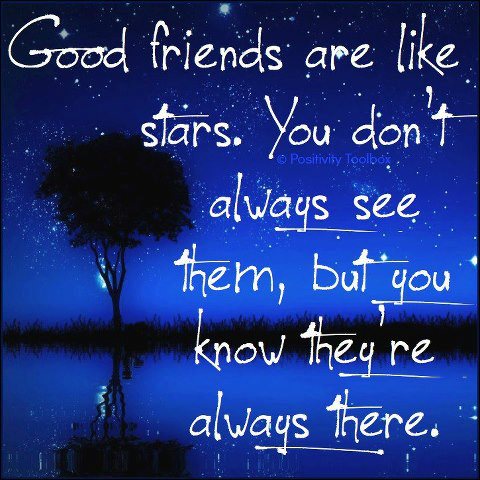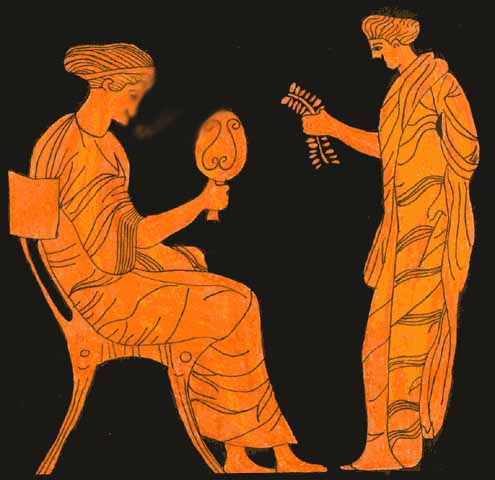

From the time we first realize there are others like us, we seek friendships and connections. It is how we learn and grow and communicate - the purpose for our visit to this experience.
The nature of friendships changes with age, the circumstances of one's life, and the changing face of reality. Great friendships, as with all positive experiences in our lives, come with truth, love, compassion, respect, strength, dependability, someone who 'gets you', soul connection, and act as catalysts for our spiritual growth.
In a world of healing and self-awareness, people are busy with education, jobs, care-taking, family, and spending whatever free time they have working on themselves, which includes reading, exercise, yoga, etc. The lack of available time to spend with others goes to romantic relationships - rethinking marriage and raising a family, as they are often too time consuming which can make them seem controlling.
In the Age of Technology, the way we communicate with friends has changed including texts, FaceTime, email, and more There are so many ways to say "Hello".
Friendships go to the 'space' you are in at any given moment of your life, and who shares that part of your journey. Friends should enhance a relationship, not bog it down with tedious and often seemingly unresolved issues. To work on yourself is to drop friends who are stuck in issues.
Some people like to be surrounded in friends, while others don't care if they have friends at all. It is personal experience and the ability to communicate. Your astrology chart generally details the levels and importance friendships are to you.
Friendship have the same power and influence over your life as family relationships, sometimes even more. Close friendships have an intimacy about them that allow each person to share their lives and secrets. We learn and grow from friendships just as we do from relationships with families and lovers. People with no siblings, often have closely bonded lifetime friendships.

Friends come in all shapes and sizes but for the most part, those we connect to often share similar traits with our own psychological, emotional, and often physical make-up. It is not opposites that attract as friends, but those in the same grid (matrix, frequency) - aligning for experience in the simulation of reality.

Sometimes you meet someone and there is a special connection from the onset. It is a often a recognition on the soul level. Your frequencies match, you feel a link or special bond, and you want to spend more time together. This does not necessarily reflect a romantic relationship, though one could develop in time, if it is meant to be part of the experience.
Karmic friendships are the people who come into our lives for learning lessons. They may be lifelong friendships or short term. The lessons can be positive or negative, depending on what one's soul is searching for at that time. It is all about the experience.
Karmic friendships often have a chemistry about them, a special unspoken dynamic, though not necessarily romantic.
As we study metaphysics we understand that these friendships come from lifetimes where soul are experiencing together in many realities - parallel, past, or future, depending on how you view the movement of time.
Karmic relationships are never limited by race, age, and sexual barriers. They have a purpose, that will be played out.
Metaphysical friends enter your life, share for a time, then generally leave. Sometimes they return; often they do not. They are sometimes people you would not have chosen as friends, had you not been on the path to healing and self-awareness. Metaphysical friends are free spirits and searchers such as yourself, and do not have the where-with-all to make you feel complete.
If the karmic relationship becomes romantic, then separates, there is often a tendency to remain attached at some level, "Can't we still be friends?" There is a feeling of being incomplete without the person in your life, which sadly goes to co-dependency and often emotional problems.
The world is in an escalating state of flux and change, reflected in our friendships, and time available to be spent with others. It is often not easy to maintain full time friendships with people. Technology helps us bridge the time gap, if only to say, "Hello."
Do you attract a karmic friendship the same way you attract a karmic lover? Yes it is the same - and often the same soul.
To be in a positive friendship, is to be in a functional positive space and know the parameters of the friend in question. You can't have a functional friendship with someone who is dysfunctional and has with endless issues and vices, which drag you down with that person. People stuck in issues who will not get help, must be let go of, no matter what the karma. The same is true of family members. In this day and age, with seek friends for fun, compassion, and to hep us heal.
Friends generally welcome each other's company and exhibit loyalty towards each other, often to the point of altruism. Their tastes will usually be similar and may converge, and they will share enjoyable activities. They will also engage in mutually helping behavior, such as exchange of advice and the sharing of hardship. A friend is someone who may often demonstrate reciprocating and reflective behaviors. Yet for many, friendship is nothing more than the trust that someone or something will not harm them. Value that is found in friendships is often the result of a friend demonstrating on a consistent basis:
In a comparison of personal relationships, friendship is considered to be closer than acquaintanceship, although there is a range of degrees of intimacy in both friendships and acquaintances. Friendship and acquaintanceship can be thought of spanning across the same continuum. The principal disciplines studying friendship are sociology, anthropology and zoology. Various theories of friendship have been proposed, among which are social psychology, social exchange theory, equity theory, relational dialectics, and attachment styles.

Friendship is considered one of the central human experiences, and has been sanctified by all major religions. The Greco-Roman had, as a paramount example, the friendship of Orestes and Pylades. The Abrahamic faiths have the story of David and Jonathan. The Christian Gospels state that Jesus Christ declared, "No one has greater love than this, to lay down one's life for one's friends."(John 15:13)
Aristotle is perhaps best known for his discussion (in the Nicomachean Ethics) of philia, which is usually (somewhat misleadingly) translated as "friendship", and certainly included friendship, though is a much broader concept.
The Roman philosopher Cicero believed that in order to have a true friendship with someone, one must have complete honesty, truth, and trust. He also thought that friends would do things for each other without expectation of repayment. If a friend is about to do something wrong, one should not compromise one's morals and let the friend commit the action--one should explain what is wrong about the action, and help one's friend understand what is right. Cicero believed that ignorance is the cause of evil.
In Russia, one typically accords very few people the status of "friend". These friendships, however, make up in intensity what they lack in number. Friends are entitled to call each other by their first names alone, and to use diminutives. A norm of polite behavior is addressing "acquaintances" by full first name plus patronymic. These could include relationships which elsewhere would be qualified as real friendships, such as workplace relationships of long standing, or neighbors with whom one shares an occasional meal or a customary drink.
In the Middle East and Central Asia, male friendships, while less restricted than in Russia, tend also to be reserved and respectable in nature. They may use nick names and diminutive forms of their first names. In countries like India, it is believed in some parts that friendship is a form of respect, not born out of fear or superiority. Friends are people who are equal in most standards, but still respect each other irrespective of their attributes or shortcomings.
Friends usually will engage in various forms of physical contact, at times spontaneous and other times of a ritualized nature. This is often used as an outward symbol of their friendship.The form and context of the physical contact has varied historically, culturally, and developmentally. In the West, these manifestations, with the exception of the more formal ones, can be seen with greater frequency among young children, opposite sex friends, and among female friends. In the East they are more equally distributed.
The most common are: handshakes, holding hands, high five, hugging, walking arm-in-arm, placing an arm over the other's shoulder or waist, kissing, imitation of fight (e.g. a punch on the shoulder, usually among males.)